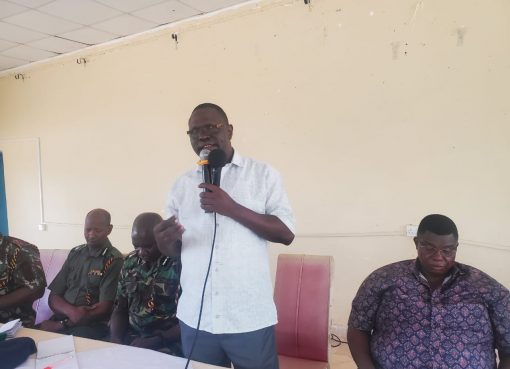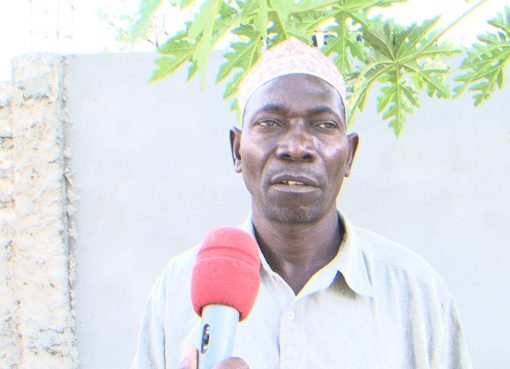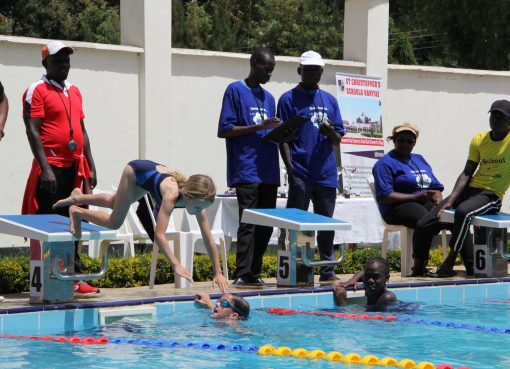Kenya Wildlife Service (KWS) has put in place legal structures and forensic infrastructure in a bid to stem the growing incidences of wildlife poisoning.
The Acting Director General of KWS, Prof. Charles Musyoki revealed that laws had changed in favour of wild game following last month’s signing of amendments to the Kenya Wildlife Act of 2013 which makes it a criminal offense for anyone to poison wildlife
“With modern technology, increased legal structures and forensic ability, we will soon catch up with those who indiscriminately poison wildlife,” he emphasized.
Prof. Musyoki affirmation is a reaction to a recent incident in which 20 vultures died and five others were found critically ill at the periphery of the world famous Masai Mara National Reserve, after feeding on a poisoned hyena.
Recent reports have further warned that the population of four out of seven vulture species in Kenya was rapidly declining as a result of poisoning.
Since 2016, KWS, Birdlife International, The Peregrine Fund, Nature Kenya, and the Kenya Bird of Prey Trust alongside other partners have been working to address and tackle the scourge of retaliatory wildlife poisoning in the country that has devastated populations of critically endangered vultures and other scavengers.
According to a report jointly compiled by Nature Kenya, BirdLife International and the Peregrine Fund, poisoning accounts for more than 60 per cent of recorded vulture deaths in Africa.
“When predators kill livestock, herders poison carcasses targeting lions, hyenas and leopards. These predators are in turn eaten by vultures leading to secondary poisoning. Vulture numbers in Africa have tumbled by 98 percent,” states the report released last week.
In Kenya, vulture poisoning is rampant in Masai Mara, Laikipia, Tsavo and Kajiado.
However, Prof. Musyoki holds that it was not just about punishing wrongdoers but also helping communities appreciate the importance of wildlife conservation in order to involve them in curbing the practice.
“Awareness campaigns have already begun to change minds, and many local community champions have stepped forward to be trained in Rapid Response Poisoning Protocol. Through such intervention measures, planned poisoning of two prides of lion was averted two years ago, and the overall poisoning of vultures in the Masai Mara has been reduced by more than 50 percent,” he noted.
“Quick response mobilization of KWS personnel and its conservation partners saw the hyena carcass and poisoned vultures immediately burned to decontaminate the scene. This rapid response helped save the lives of hundreds of other scavengers,” noted the director general.
In a report released following the tragic deaths of the vultures, Vulture Conservation Manager for Birdlife International in Africa, Rebecca Garbett warns that when scavengers and carnivores were lost from an ecosystem, the remaining imbalance could cause unexpected human and livestock health problems.
“The truth is that vultures are the unintended casualties in the tension between livestock farmers and predators. The Lappet-faced vulture, Rüppell’s vulture, white headed vulture, the hooded vulture and white-backed vulture are on the verge of extinction. There is need for more awareness and conservation measures to reverse the tide,” noted Garbett.
The Executive Director of Nature Kenya (BirdLife Partner), Dr. Paul Matiku expressed optimism that the trend would gradually be reversed through establishment of a network of rangers, security personnel, tour guides, scientists, conservationists, conservancy managers, and government officials that were committed to ensuring that mortalities from poisoning events were at a bare minimum.
“Although Kenya’s vultures are still in peril, incidents like this show that when people work together, they can make real change and provide hope for these struggling species. This work will eventually stamp out wildlife poisoning altogether,” he said.
Matiku stressed the need to intensify awareness creation at all community levels and undertake more intense training for locals on quick response to any suspected poisoning site and speedy removal of carcasses to forestall further deaths.
Other factors leading to the decline of vulture numbers were identified as habitat loss, human disturbance and collisions with wind turbines and electricity power lines.
To mitigate this, conservationists are calling for more public awareness on the need to avoid poisoning predators and the importance of vultures within the ecosystem in a bid to erase the perception that they are dirty and greedy.
The existence of vultures is crucial to society because they are productive and provide countless environmental services to humanity and biodiversity. Their survival is not just protected by Kenya’s obligations under international law, but also under Kenya’s Vision 2030 commitments.
Therefore, the protection of these birds and other wildlife is a primary duty for everyone and because Kenya is a signatory to the Raptors MoU of the Convention on Migratory Species (CMS), authorities should take decisive actions to increase protection for vultures and help prevent their extinction.
By Jane Ngugi




